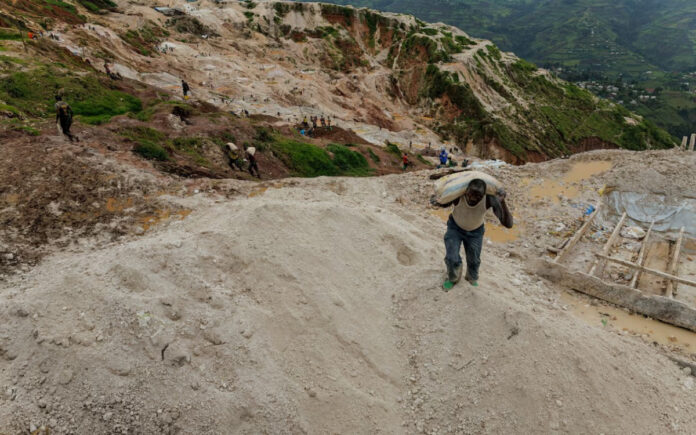Kinshasa: The Democratic Republic of Congo (DRC) is working toward finalizing a dual agreement with the United States by the end of June, aiming to secure investment in its critical minerals sector and bolster support for ending the Rwanda-backed insurgency in its eastern provinces, the Financial Times reported on Sunday.
According to sources familiar with the discussions, the negotiations involve a potential U.S.-backed peace plan and a corresponding investment framework that would enable Congolese minerals—including tungsten, tantalum, and tin—to be exported legitimately to Rwanda for processing. This shift could mark a strategic breakthrough for Kinshasa, which has long accused Rwanda of exploiting its mineral wealth through illicit cross-border trade.
The initiative, reported earlier by Reuters, is part of a broader U.S. effort to stabilize the region and limit China’s dominance in Africa’s mineral supply chains.
Congo’s Mines Minister Kizito Pakabomba told the Financial Times that a deal with Washington would “diversify our partnerships” and lessen the country’s dependence on Chinese investment, particularly in the mining sector that serves as a cornerstone of Congo’s economy.
Also Read | Russian Forces Launch Major Drone Assault on Kyiv, Casualties and Damage Widespread
Tensions in eastern Congo have surged since January, driven by violent clashes between Congolese forces and the M23 rebel group, which Kinshasa claims is backed by Rwanda. Officials say Rwanda is smuggling tens of millions of dollars’ worth of minerals across the border monthly, deepening instability in the resource-rich region.
The United States, through diplomatic channels, is pushing for both a peace accord and investment package that would channel billions in Western funding into the area. Earlier this month, Massad Boulos, a senior adviser to former U.S. President Donald Trump on African affairs, confirmed that Washington hopes to see an agreement signed this summer.
Also Read | Border Reset in Progress: India and Pakistan Explore De-escalation Measures
Meanwhile, Rwandan officials maintain that their actions are defensive. “Rwanda’s defensive measures along the border are necessary as long as threats and the cause of insecurity in the DRC persist,” government spokesperson Yolande Makolo told the Financial Times.
The U.S. State Department has yet to comment publicly on the reported negotiations.



